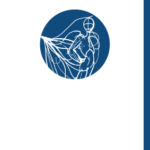Abstract
The COVID-19 pandemic has dramatically altered the provision of routine medical services and has imposed unprecedented challenges on the healthcare system. This contingency inevitably also had repercussions on the management of patients with dysphagia resulting from head and neck tumors. Technology has provided many useful tools to stem this discomfort and among them, the creation of an app seemed to us an advantageous way to go. The theoretical conceptualization underlying the birth of this project is represented, on the first step, by the observation that mobile apps for smartphones provide an ideal platform for providing educational support to patients; second step, the patients need to have these informations. A need that has certainly increased during the health emergency, as patients were unable to have easy access to the hospitals where they were followed up during the follow-up. It is important to emphasize that this tool is not a substitute for the direct relationship with the speech therapist, nor is it presented to patients as an alternative to it; however, it can be considered as a constant and continuous support to the patient and his family, as it represents one of the useful tools to best combine the existing professionalism and the needs of patients with swallowing disorders and those who care for them, exploiting the progress of technology. We tried to quantify the benefit received by the patient to assess how much SwallowAPP (the name we gave to the aforementioned App) can impact on the perception of care received at a time unfavorable to face-to-face relationships. In the same way, we evaluated the ease of use of the system, a fundamental requirement for its acceptance by the user. From the careful analysis of the work carried out, SwallowAPP has shown that implementing the quality of care provided to the swallowing disorders during the early stages of subsequent follow-up to surgery, it had a strong impact especially on the patient's quality of life.

This work is licensed under a Creative Commons Attribution-NonCommercial-NoDerivatives 4.0 International License.
Copyright (c) 2023 Journal of Advanced Health Care





